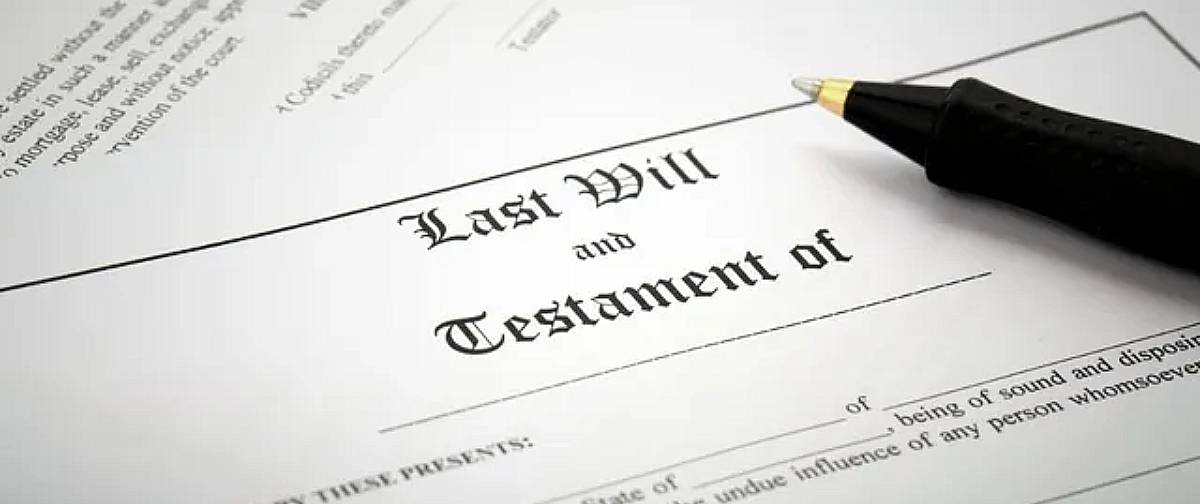Facing the loss of a loved one is never easy, especially when their will raises difficult questions. If you live in Bedford and find yourself concerned about how a will was created or whether it is truly valid, understanding your options can make a significant difference. At Holland McGill Law, PLLC, we have helped families in this position navigate the legal process with clarity, compassion, and a focus on their needs. We want to ensure you know your rights and the practical steps to take if you’re considering whether to contest a will in Bedford.
What Makes a Will Legally Valid in Bedford?
A legally valid will in Bedford must strictly satisfy requirements under English law. The testator, or person making the will, must be at least 18 years old and have full mental capacity. This means they must understand the effects of their decisions and the value of their property. The will itself has to be in writing and include clear instructions on how the estate should be distributed.
Proper execution is critical. The testator must sign the document in the presence of two independent witnesses, each over 18, who are not beneficiaries. Those witnesses also need to sign the will while the testator is present. Courts in Bedford often see invalid wills that were witnessed by potential beneficiaries or that lack the required signatures. Such oversights can result in the entire document being thrown out or called into question.
Many people in Bedford write wills at home or use online templates. While these can appear simple, they often miss finer legal points or fail to meet strict procedural standards. Working with a knowledgeable legal team helps ensure your will stands up to scrutiny and offers lasting peace of mind for you and your loved ones.
Who Can Challenge a Will in Bedford?
Only certain people have the right to bring a challenge against a will in the Bedford courts. The law refers to these individuals as 'interested parties.' Typically, this includes spouses, civil partners, children (including adopted or stepchildren), individuals who were financially dependent on the deceased, and those named as beneficiaries in previous versions of the will. Others who can show a direct interest in the estate, such as someone who was promised an inheritance, may also have grounds to challenge.
Understanding eligibility avoids unnecessary delays and expense. Relatives or associates who do not have a legal claim will usually find their challenge is dismissed before it goes far. If you’re unsure of your standing, seek legal advice early so you can make an informed decision and avoid disappointment later in the process.
Misconceptions around eligibility are common. For example, close friends and distant family members often believe they can challenge a will if they disagree with its contents. However, only those with a direct legal or financial relationship to the deceased are recognized by the Bedford courts to pursue a will contest.
Key Legal Grounds to Contest a Will in Bedford
Several statutory reasons provide the basis to challenge a will in Bedford. One of the most frequently cited grounds is lack of testamentary capacity. This occurs when the testator was not of sound mind at the time of making the will, possibly due to conditions such as dementia, psychosis, or severe cognitive decline. For these cases, Bedford courts look closely at medical documentation and accounts from those who interacted with the testator around the time the will was signed.
Another common ground is undue influence. If someone manipulated or pressured the testator to alter their will—for example, isolating them from other family or financially coercing them—legal action may be justified. Establishing undue influence generally requires evidence of actions or behaviors suggesting a power imbalance or improper persuasion, rather than simply a surprising change in inheritance.
Other valid reasons to challenge a will include fraud or forgery, where someone has created a false document or altered a legitimate one without consent, and improper execution. In some cases, individuals who were financially dependent on the deceased can also bring a claim under the Inheritance (Provision for Family and Dependants) Act 1975 if they believe a reasonable provision was not made.
Deadlines & Time Limits for Contesting a Will in Bedford
Meeting the correct time limits is essential when considering whether to contest a will in Bedford. For most claims under the Inheritance Act, the deadline is six months from the date probate is granted. Failure to act within this window usually means that your claim cannot proceed, unless there are outstanding or exceptional circumstances approved by the court.
Different types of claims have different deadlines. Issues involving fraud or the validity of the will itself sometimes allow for longer or indeterminate time limits, but it is always wise to pursue any concerns as soon as they are discovered. Early action safeguards your position and prevents the estate from being distributed prematurely.
If you believe there’s a problem with the will prior to probate being issued, filing a caveat at the Probate Registry can provide a temporary pause. This legal tool prevents assets from being distributed for six months, allowing time to collect evidence and evaluate your claim. Always check with a solicitor experienced in the Bedford area before you take formal legal action, as rules and timelines can be complicated.
Evidence Required to Successfully Contest a Will in Bedford
Strong evidence is necessary to support any claim against a will. The kind of documentation and proof you need depends on the grounds for your challenge. For a claim about lack of capacity, you’ll need access to the testator’s medical records, testimony from treating doctors, and statements from caregivers or family members familiar with the person’s mental state at the critical time.
In cases alleging undue influence, collect any direct communication showing pressure, such as emails, messages, or written notes. Statements from independent witnesses, such as neighbors, carers, or solicitors present at the will signing, can strengthen your case. Courts look for patterns—any evidence showing the testator became isolated, dependent, or fearful can be highly persuasive in Bedford legal proceedings.
If you suspect forgery, handwriting specialists may be needed to examine signatures, and comparing versions of the will or drafts can reveal suspicious changes. Gather all formal and informal documents—diaries, correspondence, legal files—related to the deceased’s intentions. The more comprehensive your evidence, the greater your chance of convincing the court to hear your case in full.
Steps to Take Before Challenging a Will in Bedford
Before beginning a formal legal challenge, follow a series of steps to put yourself in the strongest position possible. Start by obtaining copies of the will and any previous versions through the Probate Registry. Examine these documents for notable changes in beneficiaries, unexpected gifts, or inconsistencies with known wishes.
Next, schedule an appointment with a local solicitor experienced in contested wills. Bring together relevant records such as medical notes, correspondence, and a timeline of key events. This initial review allows your legal team to assess whether there are legal grounds and to estimate the cost-benefit of moving forward.
You may also want to contact the executor of the estate to express your concerns and ask for more information. Some misunderstandings can be addressed informally at this early stage. If there are reasonable answers, you can avoid unnecessary stress and cost. If concerns remain or red flags arise, you and your solicitor will be well-prepared for the next steps in the legal process.
Step-By-Step Process for Contesting a Will in Bedford
Contesting a will follows a structured process designed to protect all parties. Upon deciding to proceed, your solicitor will usually file a caveat with the Probate Registry. This prevents the grant of probate and distribution of assets. The initial caveat lasts six months and can be renewed if more time is needed to gather information or continue negotiations.
After lodging a caveat and collecting necessary evidence, many disputes move to negotiation or mediation. These out-of-court approaches provide a chance for all parties to discuss claims and reach settlements without extended litigation. Exchanging relevant evidence—like medical records, witness testimonies, or communications—can help find solutions that keep family conflicts from escalating.
If a settlement cannot be reached, the dispute proceeds to court. Bedford’s civil courts handle these cases with procedural fairness, allowing both sides to present evidence, call witnesses, and use professional analysis as needed. The process requires full disclosure, strict deadlines, and a willingness to engage in constructive dialogue with the legal team guiding you each step of the way.
Chances of Success & What Outcomes Are Possible?
Success in contesting a will depends largely on the available evidence and the legal strength of your case. Courts in Bedford and throughout the UK will give weight to clear, convincing proof of legal failings or unfair circumstances. For example, unambiguous medical evidence or evidence of overt coercion makes a bigger impact than general dissatisfaction with a will’s contents.
Possible outcomes vary by situation. The court may rule the will invalid, reinstate an earlier version, or direct that specific provisions in the estate are changed in favor of claimants. For those left out of a will entirely, the court can order 'reasonable financial provision' if the law supports their claim. Many cases resolve before trial, through settlement or mediation, saving time and cost for everyone involved.
It’s important to recognize the risks. Unsuccessful claims, especially those lacking strong evidence, can leave parties facing substantial legal bills or strained family relationships. Careful evaluation with a solicitor who understands Bedford’s approach to contested wills can help you weigh the chance of success and potential consequences before committing to the process.
Emotional & Financial Impact of Challenging a Will in Bedford
The financial costs of contesting a will can be substantial. In addition to solicitor and court fees, families must consider hidden costs like valuations, expert witness reports, and lengthy delays in receiving inheritances. If your claim does not succeed, you may also be ordered to pay some of the opposing party’s legal costs, which can dramatically affect your financial outcome.
Challenging a will also has emotional consequences. Inheritance disputes often revive old family tensions and can deepen existing rifts. After losing a loved one, the added stress of legal proceedings can prove exhausting. Feelings of guilt, anxiety, and anger are common—especially when claims are contested by close relatives or end up airing private matters in public courtrooms.
Support is available. At Holland McGill Law, PLLC, we focus on clear and compassionate communication, taking time to help families understand every step. Being aware of these challenges allows you to prepare mentally and practically for what lies ahead, helping you approach your decision with resilience and focus on a positive outcome.
Alternatives to Court: Resolving Will Disputes in Bedford
Not all will disputes need to end up in courtrooms. Where family members are able to communicate productively, negotiation and mediation offer powerful alternatives. These approaches encourage open discussion and give everyone the chance to explain their perspective. Settlement agreements allow for tailored outcomes and more privacy than formal court hearings offer.
Choosing alternative dispute resolution can save time and reduce legal costs significantly. In Bedford, many contested will cases settle at this stage, allowing families to preserve relationships and regain control over the process. The ability to agree on flexible solutions—like splitting assets differently or making provision for overlooked dependants—can help ensure that everyone’s fundamental needs are respected.
Legal teams assisting with negotiation or mediation can explain your options, prepare relevant documents, and facilitate productive communication. If these attempts do not work or one party refuses to engage, formal court proceedings remain available as a final step. Consulting with a solicitor experienced in both approaches can help you resolve issues more efficiently and with reduced animosity.
Ways to Prevent Will Disputes & Challenges in Bedford
Proactive planning is the most effective way to avoid future disputes over a will. This starts with drafting a clear, legally valid will using the guidance of an experienced solicitor. Ensuring your wishes are recorded in detail, accurately reflect your intentions, and follow all formal requirements is critical. Independent witnesses and contemporaneous records of your decisions add another layer of protection.
Open communication with family members also helps prevent misunderstandings. While difficult conversations can be uncomfortable, letting beneficiaries know your intentions reduces the risk of surprises or anger later on. Documenting the reasons for any unusual decisions—like leaving someone a smaller share—creates a record that may be consulted if a dispute arises.
We work with clients to create robust, dispute-resistant wills that take individual needs, family dynamics, and future risks into account. Thoughtful estate planning, regular updates, and ongoing discussions ensure your wishes are honored and your family is less likely to experience the hardship of a contested estate in Bedford.
The Benefits of Choosing a Bedford-Based Solicitor for Will Contests
Working with a solicitor based in Bedford provides tangible advantages. Local solicitors are familiar with the approach of judges, the preferences of local courts, and the unique concerns that sometimes arise in Bedford families. This tailored knowledge enables more accurate advice about likely outcomes, procedures, and the most effective way to navigate disputes efficiently.
Accessibility matters. Our team offers in-person consultations and flexible remote options, ensuring support is always within reach. We understand that family law and probate matters can be urgent and time-sensitive. Quick responses, clear answers, and a friendly local presence enhance the legal process and reduce the anxiety that often accompanies contested wills.
At Holland McGill Law, PLLC, we combine decades of family law experience with empathy and personal commitment. We take the time to learn about your unique family circumstances and priorities, and we build legal strategies that respect your goals. Whether you are prepared to start a formal contest or just need advice, our Bedford team is ready to offer support every step of the way.
How to Take the Next Step if You Are Considering a Will Contest
If you are thinking about contesting a will in Bedford, gathering important documents is a constructive first step. Collect copies of the will, communication between the deceased and beneficiaries, and any notes about promises or agreements. Consider writing down your main concerns and questions—this helps ensure your initial consultation is smooth and productive.
We offer flexible appointments at Holland McGill Law, PLLC—both in-person and via Zoom or telephone—to meet your needs. Our team takes time to understand the details of your case and explain possible approaches, timelines, and risks. We prioritize clear, honest advice so you can make sound decisions for your family and your future.
To discuss your situation in confidence and find out what options may suit you, contact us at (817) 934-5922. Our goal is to make sure you feel supported, informed, and confident through every stage of your will dispute in Bedford.


